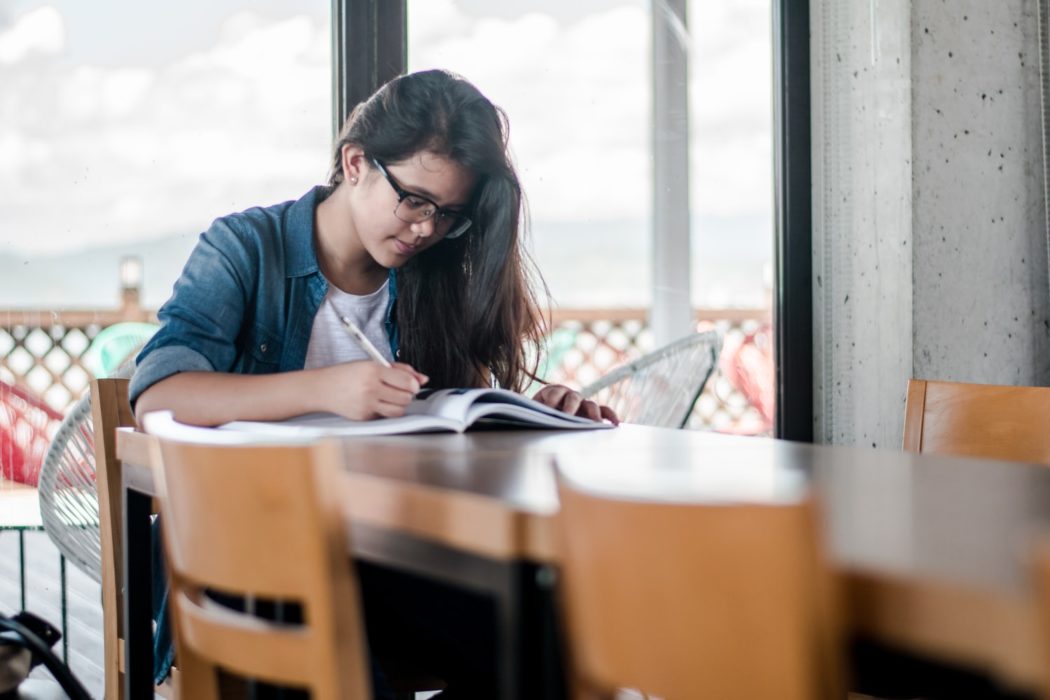As a first-generation child of immigrants, I have spent countless hours exploring the complexities of my identity. I often reflect upon the lessons learned throughout my journey, the lessons of childhood that no longer serve me, the lessons I learned growing up in New York City, and those I learned as a college student.
Often, I found myself questioning the harmful messages I heard at home, particularly around gender, sexual orientation, and religion. I knew that there was so much knowledge I had not yet tapped into.
While in undergrad, my Sociology major served me in so many ways. Sociology gave me access to language around my lived experiences. In some ways it provided a framework for me to understand my experiences, putting so much into perspective. Sure, it wasn’t perfect and doesn’t encompass my entire layered lived experience, but for a first-generation college student who grew up in a low-income, immigrant and single-parent home, it allowed me to understand the systems in place that have disenfranchised minoritized communities. At times, this understanding brought feelings of helplessness. My studies gave me an academic framework, but it did not give me the tools I needed to navigate the anger and hurt that came up for me. (Not to mention, graduating from two primarily white southern institutions of higher learning was a feat all its own.)
After many failed attempts I also began to bridge my academic identity with my identity as a queer, Latinx woman through the exploration and reclamation of practices I was previously unable to access. I began to connect to my community, to organize, to explore my ancestral spiritual practices. I began to seek the tools that the institution did not provide. I went to therapy, I journaled, I read books, I meditated, and I wrote myself love notes.
Building an identity of self-love and self-preservation was essential to my well-being, especially as I navigated spaces and experiences that did not welcome me in the fullness of my experiences.
When I was accepted into graduate school, I knew I needed to make sure I was prepared. I knew I had to feel proud and secure in my identities because I was aware this space was built to reject me. I knew the process of getting a graduate degree wouldn’t be easy and I knew the only way to survive was to bring the pieces I had built and the pieces I was still exploring along with me.
During that time, I learned so much and was met with obstacles that would have easily deferred me in undergrad. I invoked my ancestors who walked into that building every day. I imagined the hallways filled with folks who looked like me. Folks who danced merengue and had the Caribe in their soul. I knew that there were only a few people of color in my program.
I knew the campus community had experienced and was experiencing the symptoms of white supremacy and bigotry and that the institution itself was part of upholding these systems. I had to be unapologetic. I had to know who I was. I had to connect to my community in ways I had not been able to before because it meant my survival. I knew I had to educate myself outside of the institution and that an essential part of being the social worker I wanted to be required going against the grain, addressing my baggage, my socialization, my trauma and my privileges.
Building your identities outside of what was prescribed by family, by school, by our social groups, and by institutions is a lifelong journey. It isn’t easy, but the freedom that comes with seeking help, decolonizing and rebuilding an identity is what I aim to continue to do. I cheer you on if you too, have been in the process of learning the ins and outs of who you are outside of your family unit, and your academic identity as well as unlearning the messaging from society, white supremacy, ableism, homophobia, etc.
The process of unlearning is so essential to who I am as a social worker because it truly gives me perspective and allows me to explore and address even the areas where I still fail. I am committed to this process because it is essential to social justice work and anti-racist work. It is essential to my survival and the survival of those I love and want to see flourish.
Growing up, I was taught to believe exactly what I was told. In high school, I was taught not to trust myself. In college, I was informed that my voice was too boisterous and, perhaps, even unwelcomed, but I know myself today more than I did then. I stand with my beliefs and convictions and continue to do the work of building my identities and unlearning messaging that no longer serves me.
Stephany Mejia, is a queer Nicaraguan-Dominican social worker and new yoga teacher living in Durham, NC. She spends her free time with her plants, her books, djing and building community.



There are no comments
Add yours